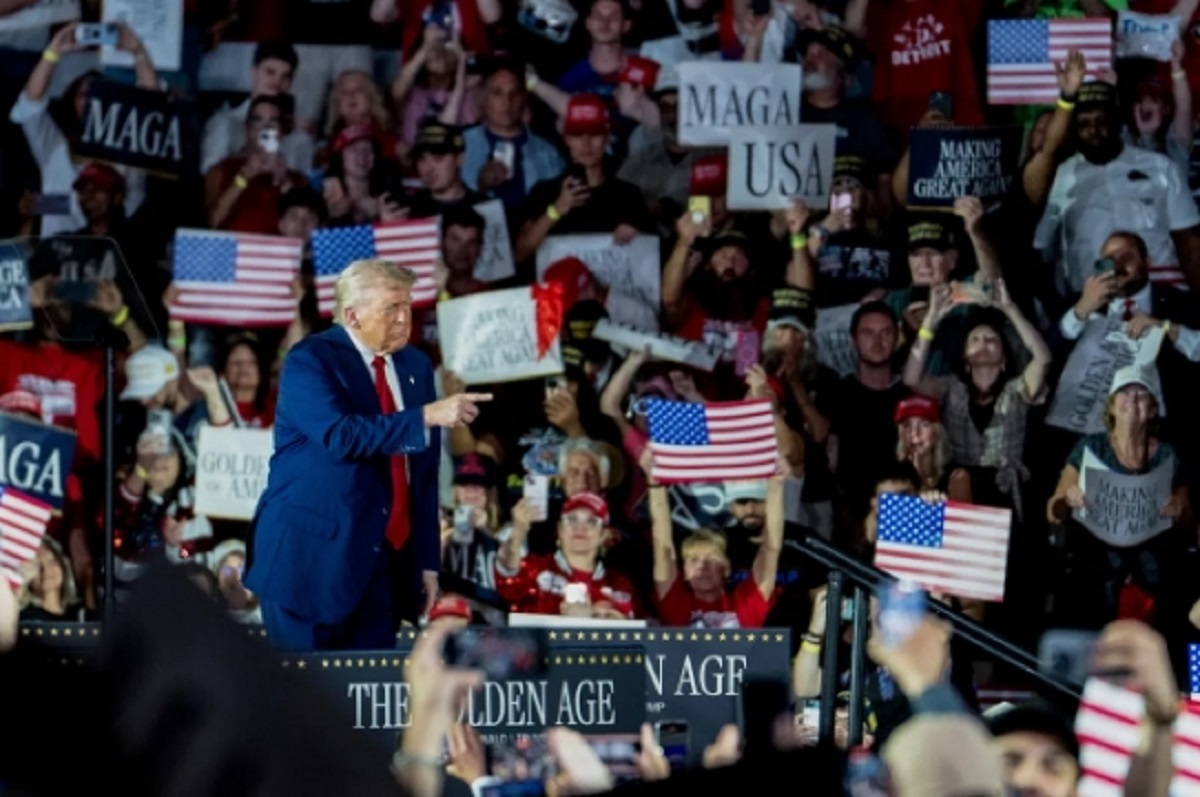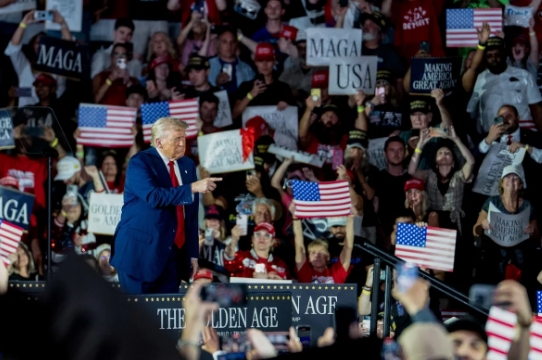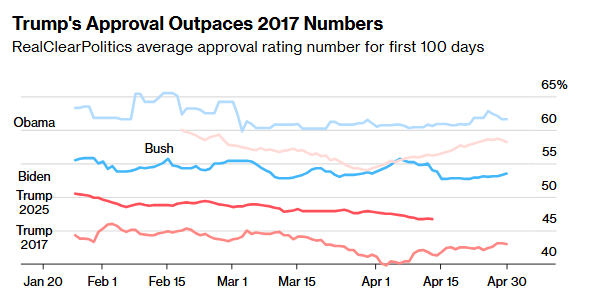Trump's 100-Day Rally: Criticism of Powell, Tariff Defense, and What’s More?
In marking his 100th day in office, President Donald Trump took the stage at a rally just outside Detroit, Michigan, on Tuesday, delivering a fiery defense of his economic policies and tariff regime w

In marking his 100th day in office, President Donald Trump took the stage at a rally just outside Detroit, Michigan, on Tuesday, delivering a fiery defense of his economic policies and tariff regime while bashing yet once more on Federal Reserve Chairman Jerome Powell.

Trump Renews Criticism of Powell
Trump renewed his criticism of Powell during the rally.
Championing his economic policies and tariff regime, Trump stated, “Inflation is basically down and interest rates came down despite the fact that I have a Fed person who’s not really doing a good job.” This denunciation came despite Trump’s earlier statement this month that he had no plans to fire Powell, though his persistent criticism has previously jolted markets and compounded investor fears about his tariff plans.
Trump further remarked, “You’re not supposed to criticize the Fed. You’re supposed to let him do his own thing — but I know much more than he does about interest rates.” This reflects his ongoing frustration with the Federal Reserve’s pace of interest rate cuts and its independent mandate.
Powell, however, has repeatedly emphasized data-driven decisions in several occasions to balance inflation and employment, particularly in light of the economic challenges posed by Trump’s tariff policies, which he warned could create a “challenging scenario” for the central bank by driving inflation and slowing growth.
Trump’s Tariff Defense and Economic Growth Claims
Trump wrapped his criticism of Powell in a broader defense of his signature tariff program, arguing that it would inspire a wave of economic growth and lure manufacturers back to the U.S. Hours before the rally, he signed directives easing some planned tariffs, including a two-year reduction in 25% auto parts levies for components used in U.S.-finished vehicles.
He cast this as “a little flexibility” to encourage companies to relocate manufacturing, while issuing a stark warning to automakers: “We gave them a little bit of time before we slaughter them.”
Trump framed the tariffs as a necessary step to offset the costs of his upcoming tax legislation, an extension of his 2017 tax cuts with added measures like eliminating taxes on tipped wages, Social Security, and overtime pay. He urged supporters to “remember who those grandstanders are and vote them the hell out of office” if Republicans oppose his agenda.
The rally’s location in Macomb County—a former Democratic stronghold that voted 56% for Trump in 2024—underscored the political weight of his economic promises, with many residents embracing his vision of revitalized manufacturing.
However, automakers like stellantis and general motors have warned that stiff tariffs could lead to plant shutdowns and job losses, as seen in recent production halts in Michigan, Indiana, and Canada.
Polls reveal voter skepticism, with consumer confidence hitting a five-year low in April amid fears that tariffs could spike prices and tip the economy into a recession. Trump dismissed these surveys as biased, insisting, “I think it’s going to work out,” and claiming his tariffs “haven’t even really kicked in yet.” Supporters like one 30-year-old Stellantis employee, echoed this optimism, saying, “He’ll tweak everything to make it work.”
Approval Ratings and Public Sentiment
Trump’s 100-day victory lap comes as his approval ratings have sunk to historic lows for a president at this milestone.
A recent public survey poll found just 39% of respondents approve of his performance, while another survey reported 41%, driven by concerns over his economic management and recession fears. Immigration remains a relative strength, bolstered by intensified border security and deportation efforts, but his broader economic agenda faces significant doubt.

The president’s rapid policy shifts—evidenced by scores of executive orders on topics from trade to federal spending cuts led by Elon Musk—have fueled perceptions of instability. Trump’s speech followed a visit to Selfridge Air National Guard Base with Michigan Governor Gretchen Whitmer, with a planned commencement address at the University of Alabama later this week. Despite his efforts to rebuild support, the data suggests a deeply divided public, wary of the economic risks tied to his tariff and trade strategies.
Disclaimer: The views in this article are from the original Creator and do not represent the views or position of Hawk Insight. The content of the article is for reference, communication and learning only, and does not constitute investment advice. If it involves copyright issues, please contact us for deletion.